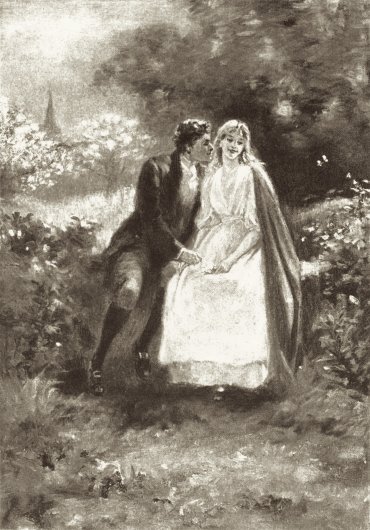Some of us hopeless romantics grew up hearing about something that I think is setting us all up for failure.
We hear songs about this, and watch idealistic romantic movies and go into relationships both expecting and aspiring to something that is not humanly possible.
The expectation that unconditional love exists is not realistic—at the end of the day, it will only lead us to pain.
I spent most of my life thus far searching for this. I was resentful toward my parents, partners, and everyone else for years because I did not see—let alone feel like I was ever loved unconditionally.
Sure, I felt loved. I knew that people loved me, but there were times—and there always will be times when these same people treated me in ways that were anything but loving.
The way that I see love, real love, is that love—as a noun, is always a reality.
This is sometimes referred to as “true love,” but I also argue that love itself is always true, so we do not necessarily need to refer to it as such.
Amongst others, I have both been taught and believe that all of our actions stem from either love or fear. Every single thought and word even, can be traced back (sometimes rather creatively), to one of these two origins.
With that said, both love and fear are not necessarily concepts which exist on polar ends of some type of continuum, and I argue that they are not opposite energies or concepts either.
Fear is an emotion, real love (of the noun type) is not. So we really cannot compare the two, but we can recognize that they can still have powerful effects on one another.
Rather, real love holds more weight than fear, even though sometimes fear gets in the way of love.
Picture love as being like the sun. From our tiny little existence on Earth, we can hold up something as small as a baseball, and this can impede our vision of the sun if we hold it even a few feet from our face. We can seemingly block out something as powerful as the sun with all of it’s power and force, by just blocking our immediate vision ever so slightly.
The same goes for love. While it can be a powerful emotion, fear holds nothing when compared to love, but it can block it from our limited perspectives just enough so that we can not see it, let alone feel it at times.
But love is still there. It is still there with all of it’s warmth behind, under, and all around that fear. If we look directly at the ball, we see it for what it is. We can move it out of the way, we can toss it out to the side—we can even choose to see it as something that is not a real threat.
Love is what exists underneath everything else and can be put into it’s own category that in it’s essence does not exist as an emotion or as an action.
We can say that we love somebody. We speak of it as something that we are doing, but all that loving somebody really is is taking the fear out of the equation and uncovering the love that is there naturally between all of us.
So, love itself is there unconditionally, but the conditions in which we live and breathe and exist as people are never, for anybody, truly conducive to acting out this reality.
The expression of love—our feeling and realizing love is where this notion falls flat, as what we are typically seeking when it comes to unconditional love is likely of this nature.
We struggle.
We struggle a lot and we are human. We have fears that block love out of our fields of vision and despite our best of intentions can act in ways that are selfish, judgmental, and short-sighted to put it mildly.
I have felt real love deeply before.
I have allowed this to surface romantically as well as with my two small children. It is there and I feel this and it is as real as the mug that I am sipping coffee out of right now. This is not just something that I talk about—rather it is the driving force that certain thoughts, words and actions stem from, which requires no effort from me beyond feeling what is there, and ensuring that I do not let my own fears and vulnerabilities cloud this pure love.
We all have heard the laundry list of other vibes that we mistake for love—lust, loneliness, pity, our need to give and feel important, or a need to take or be validated. We can hang all of this out to dry and begin to see that what fades in any relationship is nothing more than surface level human needs.
The love that is always there is as strong if not stronger than the sun and has the energy to sustain us and fuel us to an even greater capacity—if we let it.
But we will trip up.
Every single one of us will fall short on this.
We will have those times when conditions are not favorable to allow this energy to flow and it is not only our choice, but arguably our responsibility to not expect this all of the time from those close to us.
We can see each other as fallible. We all are.
And we can do our very best to let this shine through as often as we can.
When we expect unconditional love, the inevitable disappointment that we feel when this is not what we receive does nothing but instigate even more that will block the real love from surfacing.
Our reaction to not receiving unconditional love can cause us to then react in a way where we are not loving in return, and until somebody is aware enough to see what is happening and to have some grace, understanding and compassion, this can result in a chain reaction that could perhaps even explain the human condition for being what it is today.
We are imperfect.
We deserve grace and others deserve our grace.
We deserve to not expect things from people that they are not always capable of giving.
We deserve to love others even when they are not giving us what we want—even if we sometimes have to walk away from them.
We can be intentional in allowing this love to surface as often as we can, and at best aim for both unconditional grace and compassion for both one another and maybe even more importantly ourselves.
Relephant:
Your Soulmate Isn’t Who You Think It Is.
Author: Katie Vessel
Editor: Renée Picard
Photo: Wikimedia Commons











Read 1 comment and reply